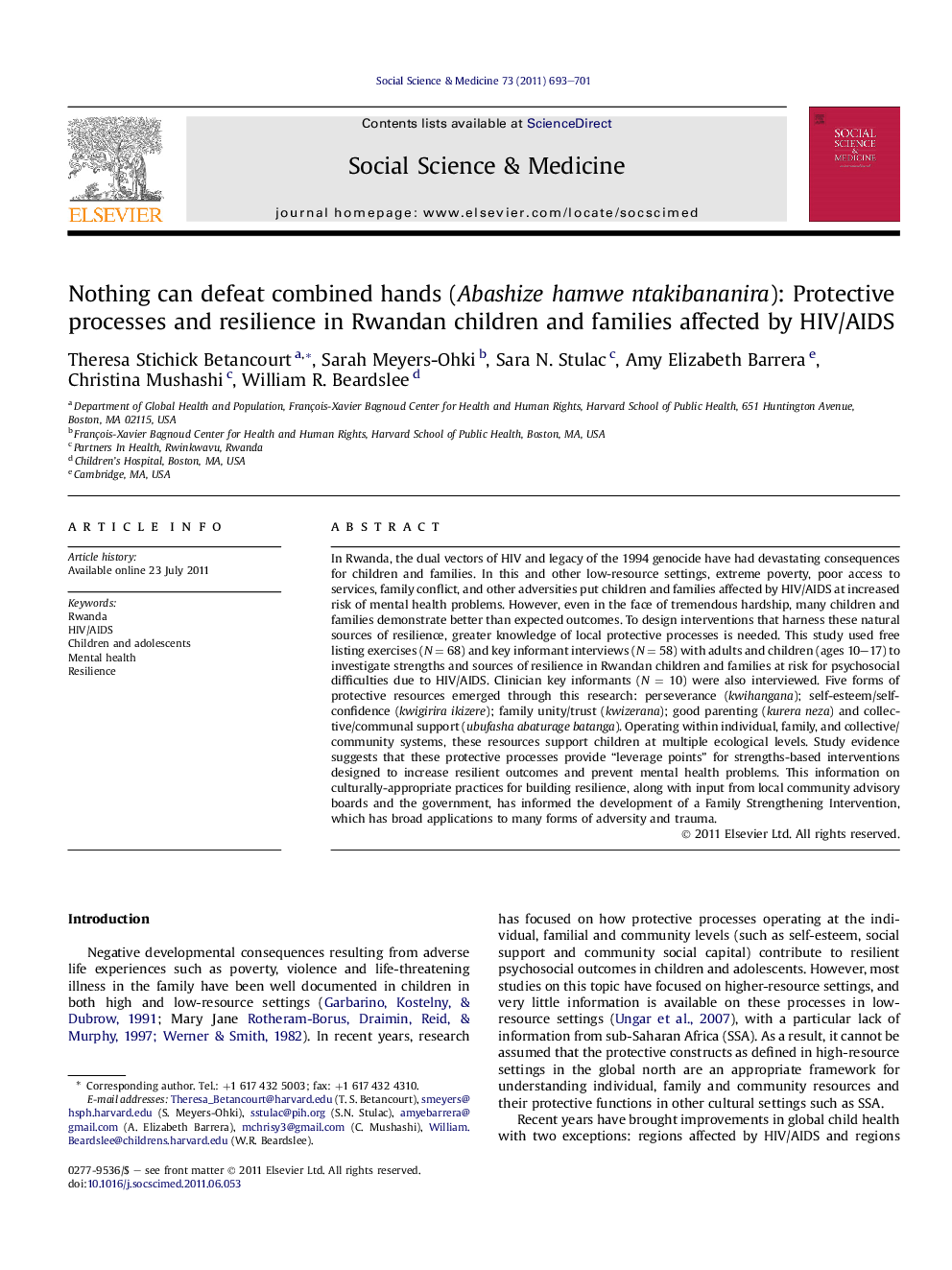| کد مقاله | کد نشریه | سال انتشار | مقاله انگلیسی | نسخه تمام متن |
|---|---|---|---|---|
| 952570 | 927522 | 2011 | 9 صفحه PDF | دانلود رایگان |

In Rwanda, the dual vectors of HIV and legacy of the 1994 genocide have had devastating consequences for children and families. In this and other low-resource settings, extreme poverty, poor access to services, family conflict, and other adversities put children and families affected by HIV/AIDS at increased risk of mental health problems. However, even in the face of tremendous hardship, many children and families demonstrate better than expected outcomes. To design interventions that harness these natural sources of resilience, greater knowledge of local protective processes is needed. This study used free listing exercises (N = 68) and key informant interviews (N = 58) with adults and children (ages 10–17) to investigate strengths and sources of resilience in Rwandan children and families at risk for psychosocial difficulties due to HIV/AIDS. Clinician key informants (N = 10) were also interviewed. Five forms of protective resources emerged through this research: perseverance (kwihangana); self-esteem/self-confidence (kwigirira ikizere); family unity/trust (kwizerana); good parenting (kurera neza) and collective/communal support (ubufasha abaturage batanga). Operating within individual, family, and collective/community systems, these resources support children at multiple ecological levels. Study evidence suggests that these protective processes provide “leverage points” for strengths-based interventions designed to increase resilient outcomes and prevent mental health problems. This information on culturally-appropriate practices for building resilience, along with input from local community advisory boards and the government, has informed the development of a Family Strengthening Intervention, which has broad applications to many forms of adversity and trauma.
► One of the first studies in sub-Saharan Africa to investigate protective processes in vulnerable HIV/AIDS-affected children.
► Triangulates multiple forms of data to identify important individual strengths, family resources, and community supports.
► Considers local resources as “leverage points” to mitigate risks of mental health problems and increase resilience.
► Argues that such naturally-occurring protective resources should form the foundation of strengths-based interventions.
Journal: Social Science & Medicine - Volume 73, Issue 5, September 2011, Pages 693–701